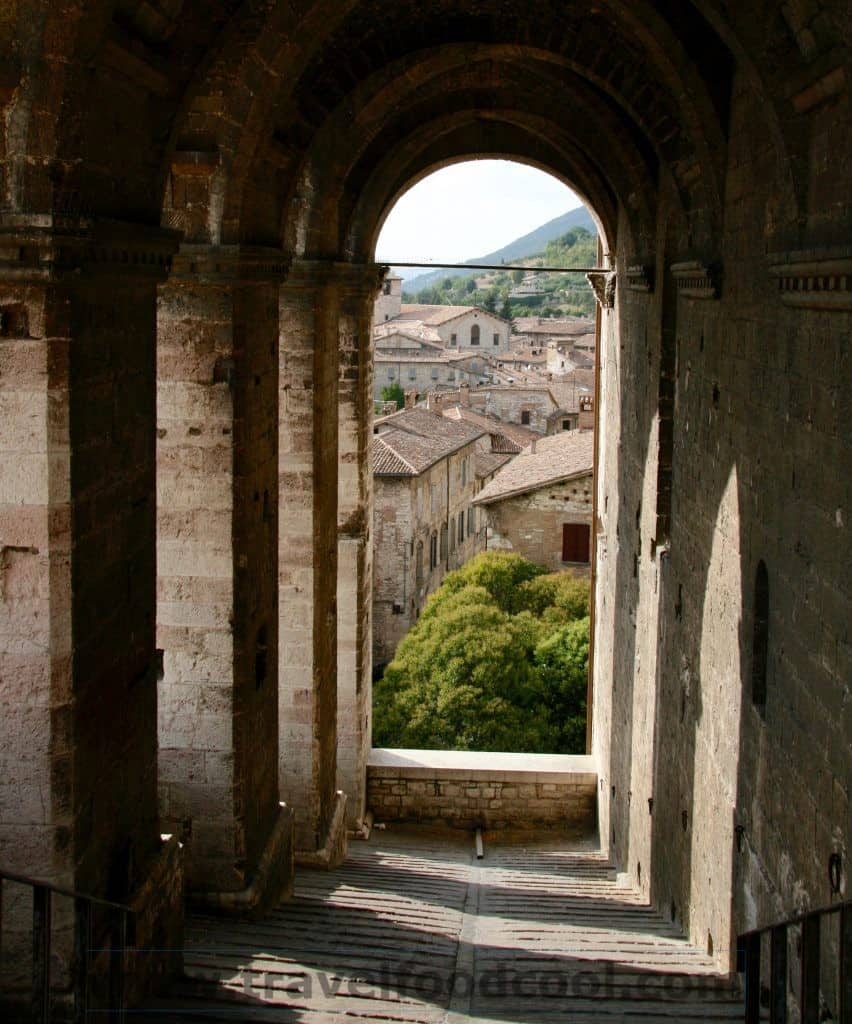
I know, it will be my fault if you end up singing the Phil Collins song Sussudio as you walk around Gubbio. I know I do: Gu-Gu-Gubio, whoa-oa! Besides the fact that the name is a heck of a lot of fun to say (Gu-Gu-Gubbio!), Gubbio is a stunning medieval town of steep winding walkways and stone buildings. Getting there is a bit nerve racking as you must drive across and over very winding (and somewhat narrow) roads and hills, but once you are there, you are in for a treat!
In the summer theatre fans can actually attend a play in the Roman Theatre (Teatro Romano), which was built around 1 BC and restored in 1 AD. During Emperor Augustus’ reign, this was the second largest theatre in Italy; second only to the Theatre Marcellus in Rome.
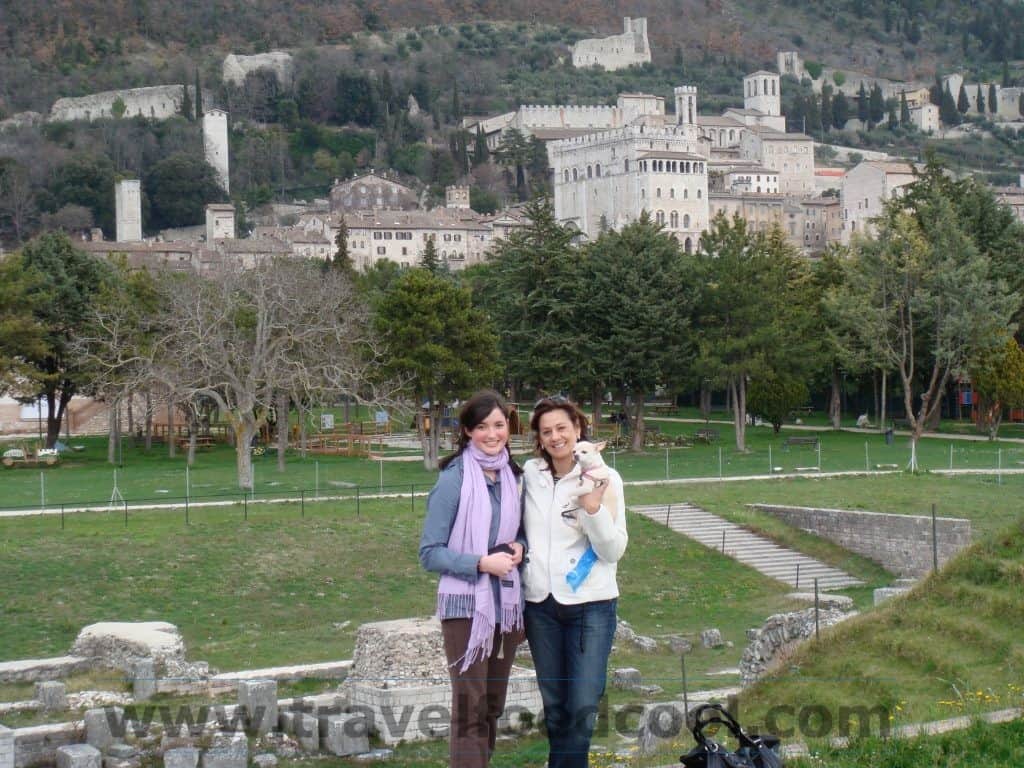
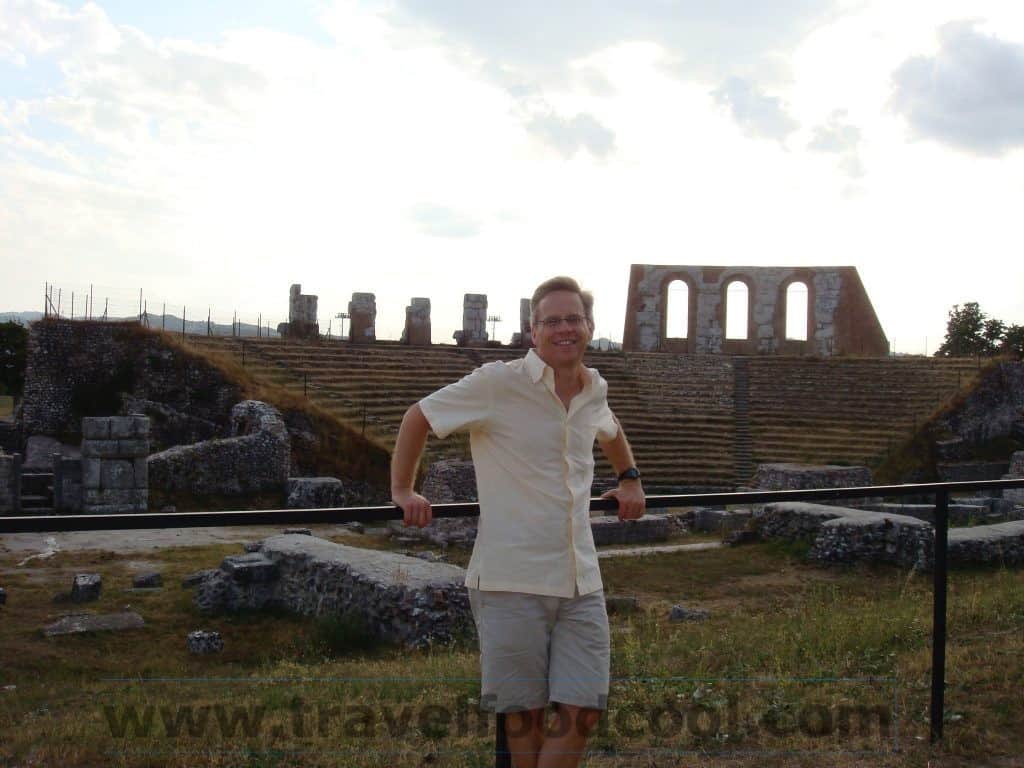
Don’t miss the Piazza Grande, Palazzo dei Consoli and Museo Civico and make sure you go to the top on the Funivia.
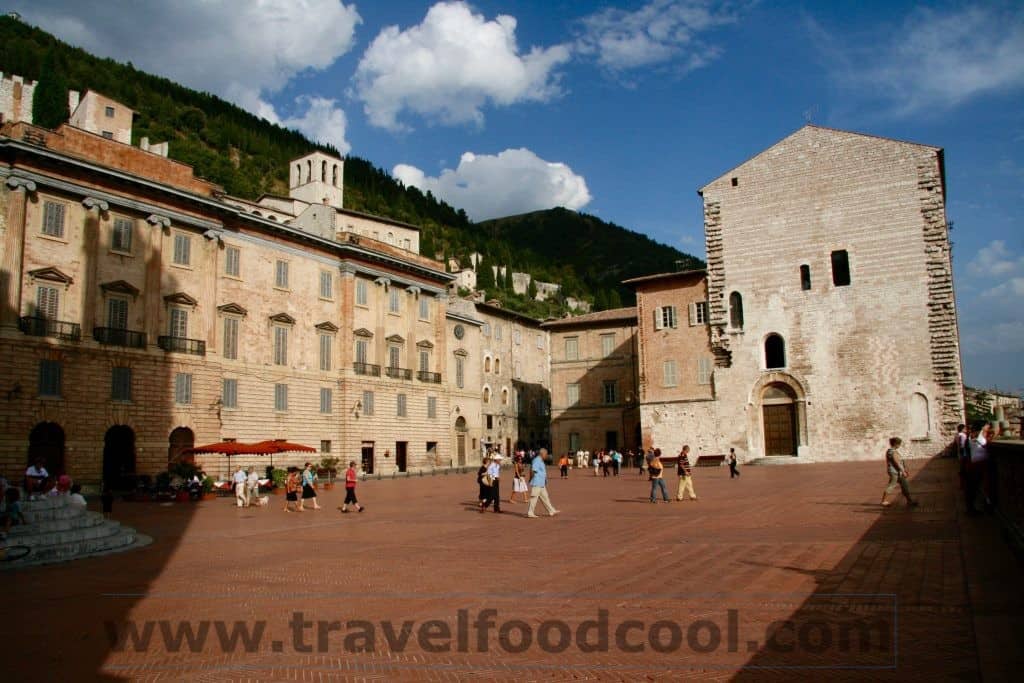
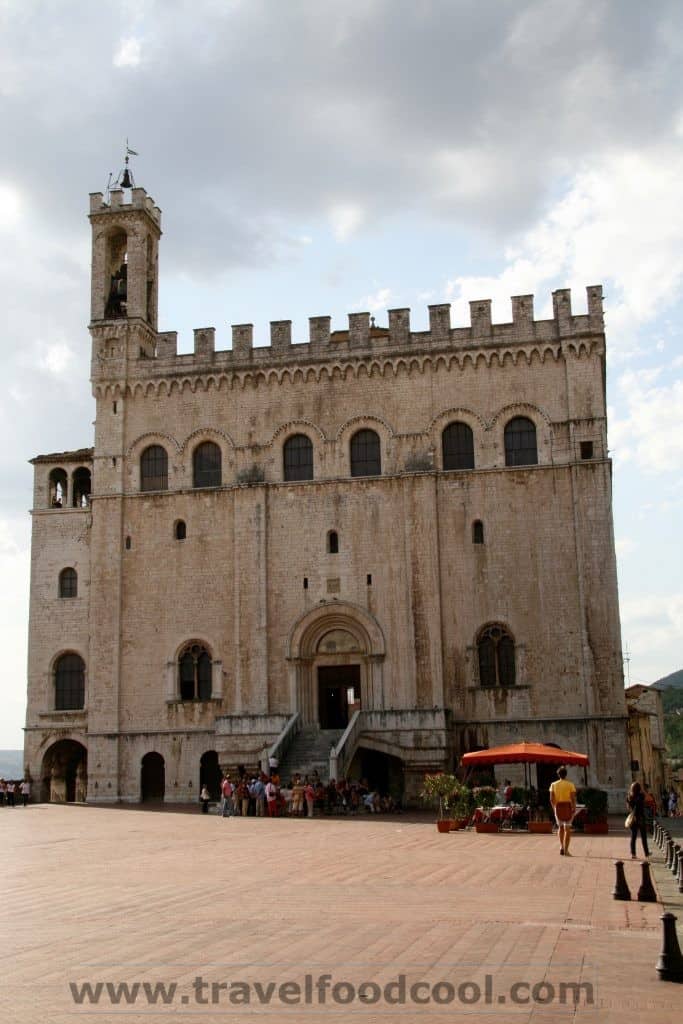
A great thing to do in Gubbio is to grab a picnic lunch and brave the “Funivia”, which is a birdcage like contraption, and get whisked up the top of Mount Ingino for a lunch (there are picnic tables) with a spectacular view. If you are there on Tuesday for market day, the Porchetta wagon serves porchetta paninis! The ride on the Funivia (besides giving you a good story), rewards you with an amazing vantage point and the opportunity to take great photos of the town (and selfies)!
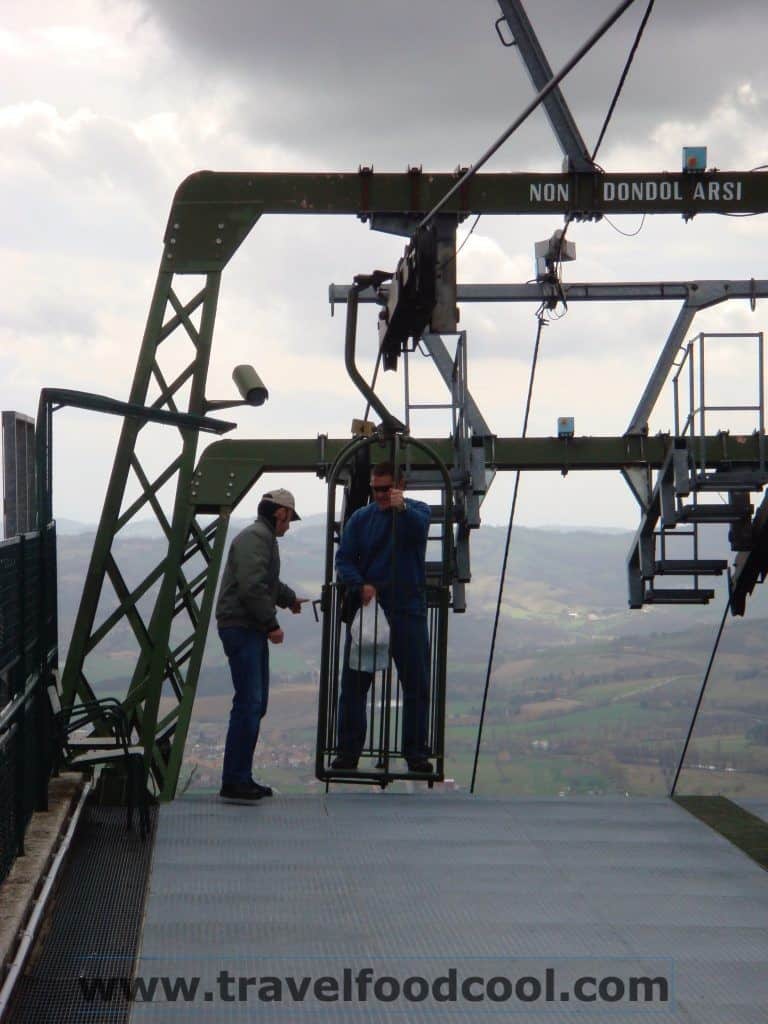

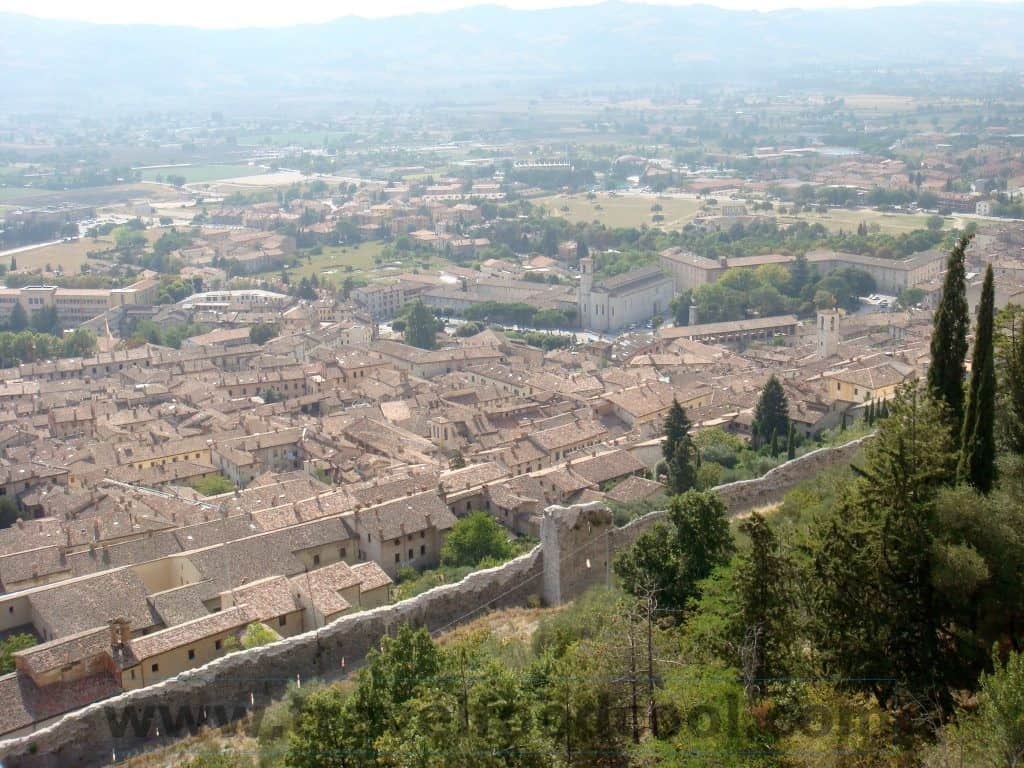
Once you have braved the birdcage (you can also walk, although it is not recommended) to the top of the hill, you can visit the Basilica of St. Ubaldo. Ubaldo, the patron saint of Gubbio, was a 12th century bishop who warded off the attacks of the Perugians. In his namesake church, you can see him, Snow White-like, on top of the altar in a glass box.
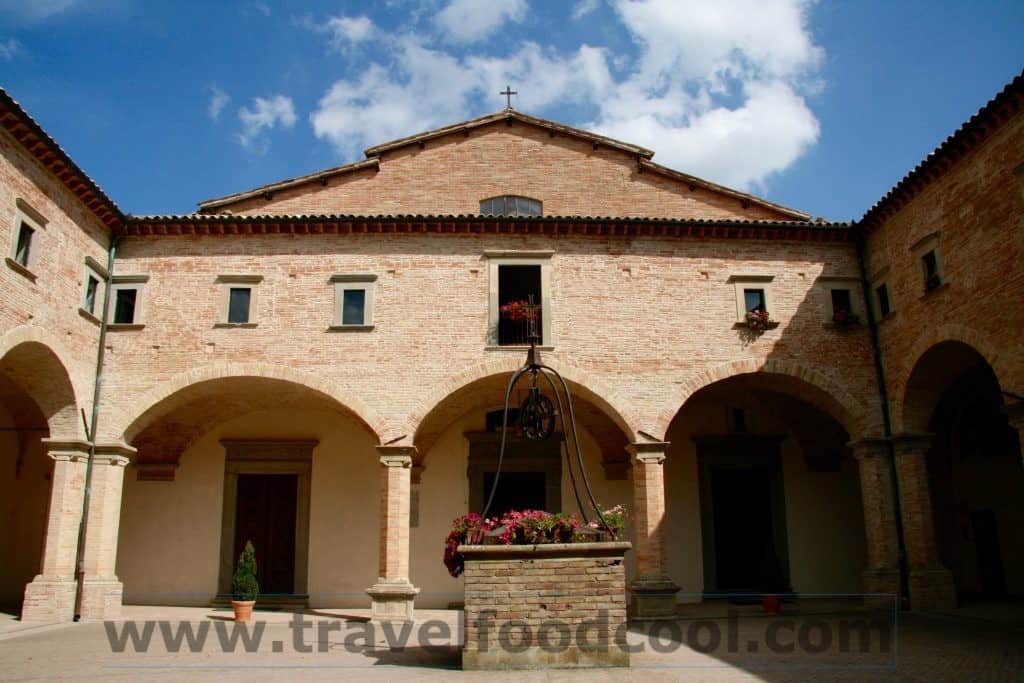
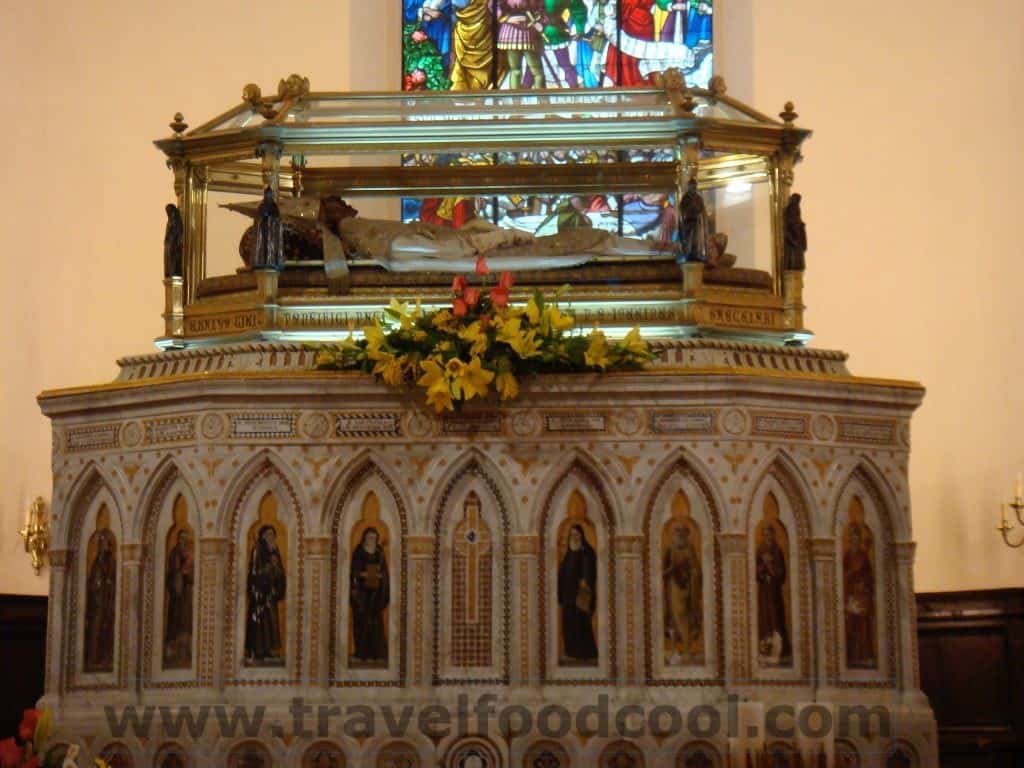
The same church plays host to three giant (5 meters high) wooden candles (ceri) that weigh 400 kg each. To be honest, they don’t look so much like candles as they do massive wooden hour glasses, but these candles play a major role in one of Gubbio’s (and Umbria’s) most famous events, The Corsa dei Ceri.
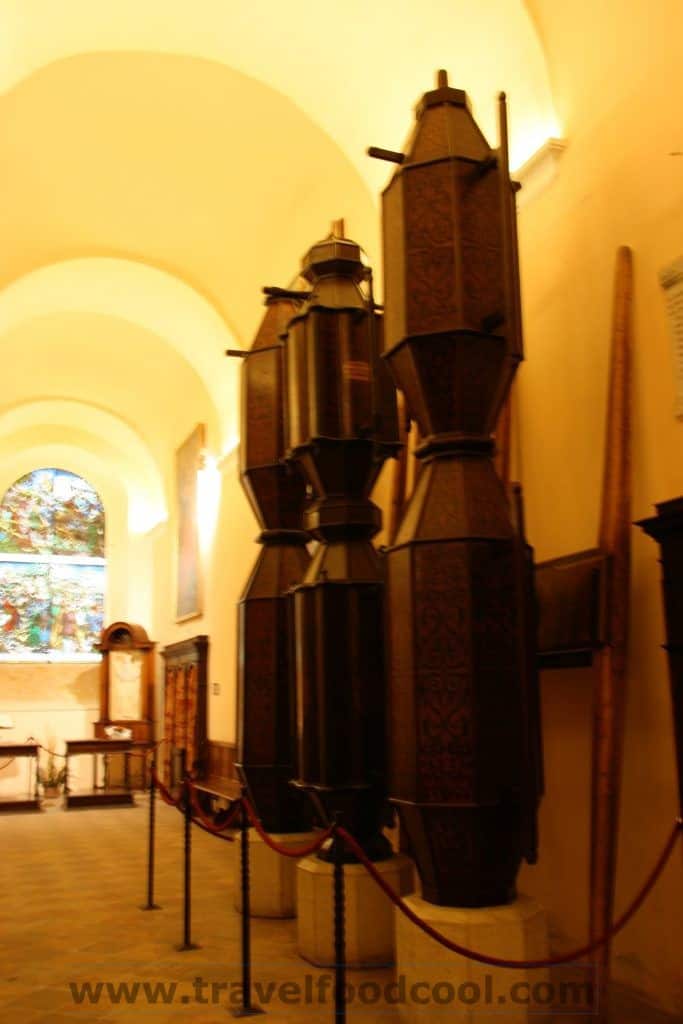
This race is one of Umbria’s best known medieval traditions and it occurs every May 15 (starting time is approximately 6 pm). The candles are crowned with figures and draped in colours which represent each saint. St. Ubaldo, draped in yellow, represents bricklayers and masons; Sant’Atonio Abate in black, protector of farmers and students; and San Giorgio in blue representing merchants. The massive candles are hauled by a 10-man team, 2.5 miles (4km) up the mountain, by foot, in less than 10 minutes. Although it might look like a crazy race, I will let you in on a secret…the race is fixed….St. Ubaldo always wins!
Just in case you need the tune, and besides, hey, who doesn’t like a little 80s music, here’s the official music video!





















